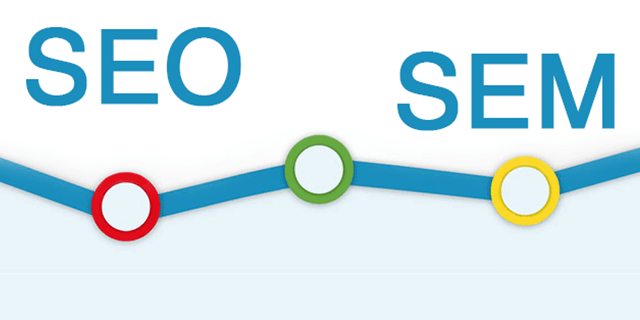What Is SEM and How Should It Be Carried Out?

When it comes to being found online there are many avenues that online marketers can take. With so many options available, it’s not uncommon for those new to the online marketing arena to ask, “What is SEM?”
SEM is an acronym for search engine marketing, and it helps companies find placement online by budding on relevant keywords.
What is SEM?
In laymen’s terms, SEM is when a business promotes its wares via the use of online ads. When planning a SEM strategy there will often be a tool available that helps marketers target keywords specific to their niche.
The amount that is bid can depend on the popularity of the keywords, meaning that SEM can vary in cost depending on what a company is looking to achieve
SEM vs SEO: What’s the Difference?
Given that the acronyms are similar, it’s easy to see why some may confuse search engine marketing with search engine optimisation. However, there are a series of differences to be aware of, although it’s common that both methods will be used.
SEO does make use of keywords, but its efforts are less immediate than that of SEM and use a more organic approach.
SEM offers a more instant solution, and the placements of ads can be tailored from within a dashboard in most instances.
The use of SEM can be beneficial for new companies who want to make an impression online sooner rather than later.
However, in most instances, the use of SEO is also essential. This will ensure that the website being marketed can obtain organic traffic in the long-term without having to rely on SEM in every instance.
Examples of SEM Platforms
Given the main concept of SEM is paid advertising it should come as no surprise that among the major players are the main search engine providers, such as Bing, Yahoo and of course, Google.
However, there aren’t the only platforms available, as other SEM platforms are able to offer a similar service. These companies include Kenshoo and Marin Software.
There is not one platform that will suit every brand and business, as there can be other factors that need to be considered.
However, knowing that online marketers have a choice when it comes to choosing a SEM platform means that it shouldn’t be too hard to tailor a solution to fit the requirements of a brand or business.
Finding Success with SEM Platforms
Although many will find success with their chosen SEM platforms, others may find that some keywords weren’t as attractive as first thought. Fortunately, there will be insights available that help online marketers tailor their strategy for more success in the future.
Gildun Samy Abdelkrim